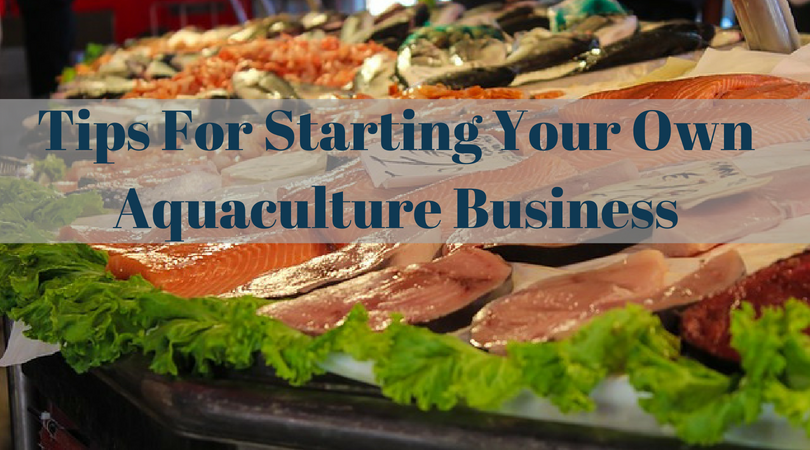Starting small
One of the least risky approaches to setting up your own business is to start on a part-time basis while retaining your main source of income. If you’re already spending a fair amount of your spare time on caring for your own livestock, then turning that commitment into a way to make some money will be straightforward, not requiring too much more in practical terms. Most of your new efforts will be in the additional tasks of making a name for yourself and spreading the word about what you are doing. Having a website or blog that you can post relevant content to is a sensible first step. You can create your own using a blogging platform or website builder for a very small investment, and then use it to add posts about your specialist subject and links to useful resources. You need to commit to posting frequently and providing articles that are well-written and informative, so you will attract the people who are interested in the subject matter and establish yourself as someone who is an authority in their area.
Financing your venture
If you’re starting small and opting for the side hustle model to get you going, your financial commitments needn’t be too onerous. You might need to invest in some new breeding stock, your website, and a few publicity materials, but this shouldn’t amount to too much. If you need upgraded equipment or new tanks or ponds, you may be looking at a more substantial investment. The amount you want to commit to your business will depend on what you can afford to put into it, and if you have limited funds, it could be worth checking out what credit options are available using a financial specialist such as Bonsai Finance. This is a reasonable solution if you are going to be able to make the repayments on loans or credit cards without any problems, but it’s not worth taking on a debt you can’t manage, so make sure you are realistic about your available resources.
Keep it legal
 You’ll be liable for making tax returns on income earned from the business, and for keeping the right records and observing any laws, both state and federal, that govern small businesses. There’s also a whole raft of additional regulations in force when it comes to dealing with living creatures, so you must make sure that what you are planning will conform to these regulations. The welfare of your livestock should be your priority, and if you start off as an enthusiast, it probably will be anyway. There’s a clear ethical consideration when it comes to making money from live animals, but in practical terms, you could face penalties if you don’t abide by the regulations, and you’ll be more prone to losing stock, low hatching or birth rates, and giving refunds to dissatisfied customers if your livestock is in poor condition. That will all impact the profitability of your business.
You’ll be liable for making tax returns on income earned from the business, and for keeping the right records and observing any laws, both state and federal, that govern small businesses. There’s also a whole raft of additional regulations in force when it comes to dealing with living creatures, so you must make sure that what you are planning will conform to these regulations. The welfare of your livestock should be your priority, and if you start off as an enthusiast, it probably will be anyway. There’s a clear ethical consideration when it comes to making money from live animals, but in practical terms, you could face penalties if you don’t abide by the regulations, and you’ll be more prone to losing stock, low hatching or birth rates, and giving refunds to dissatisfied customers if your livestock is in poor condition. That will all impact the profitability of your business.
Choosing your niche
The most successful small businesses have a clearly defined niche that enables them to focus on being the best in a very specific aspect of the market. This allows you to target your marketing to precisely the right people – those who are most likely to be interested in your service. When you’re choosing which niche to occupy, think about where your own strengths lay and what topics you have the most expertise in. Lacking sufficient knowledge of your topic will be a major stumbling block, as you won’t be able to compete with other experts in your field. If you aren’t fully confident that you have the expertise you need, then spend more time studying and gathering information before you commit yourself to starting a business.
Competition
You also need to assess where your competition lies so that you position yourself most advantageously. If you want to start selling your own koi for example, but there is an established specialist already doing the same thing in close proximity, you’ll need to determine how you could set yourself apart from them and offer something different that will attract customers to you. How you do this will depend on your skill set and where you can see a gap in the market.
Competing on price
Price may not be the best approach, even though it’s an obvious competitive factor. If you set yourself up to undercut your rivals, you may get some business, but there will be several disadvantages too. You may become embroiled in a price war that means you make little or no profit for all your work. You may be viewed as a less of an expert than you are, or even a bit of a cowboy if you play on the low prices you offer. People buying fish and other water creatures want to know that the animals will be in as good a condition and as healthy as possible. If your prices are low, it could give the impression that you don’t take care of your stock as well as you could, and customers will pay a higher price for animals they consider have a better chance of thriving.
As you build up a solid web presence and a respectable number of followers, you can start publicizing the products, services, and animals you will be selling, and commence trading on a modest level. You can also begin to market your offer in earnest on special interest websites and in relevant hobbyist publications to build up your sales. If your blog or website becomes popular enough, you can also start making money from adverts and placements if you wish.
P.S: Thanks for reading. Your feedback is important to us. Please add your comments below. Also, to learn more, join our EAT FREE Community, where you can make a little money making the planet better!




Thanksfor stopping over Claire!
I hope your ideas prosper, my ambitions are much smaller. I would like to know what it would take to raise 10 to 15 lbs or 10 to 15 l lb. Bluegill a year, in three harvest per year.
Strictry for personal consumption
I would like to know if you conduct trainings or internship programs
I am in Florida(33027)right now and for the next 5 months.Because I don’t have any knowledge in aquaculture : I would like to know if you have on site training(workshop for example).The reason why I am looking for this informations , it’s because I would like to do aquaculture as a business and as a way to feed some kids with no food before and after school in the hometown of my mom who is no longer. Antonio Bruno from Haiti